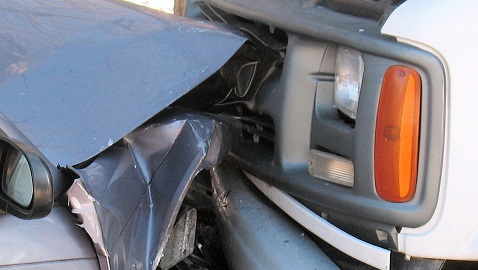Truck Driver Fired After Accident — He Responds by Suing His Former Employers
Post Views 14A collision in a company vehicle led to a truck driver’s termination, an act that took both the driver and his former employers to court. He made a number of charges against the company, including age and race discrimination, retaliation and negligence.
The man drove trucks for Select Energy Services, an oil services company headquartered in Houston, TX. In early 2011, he informed his supervisor that he would be looking for work closer to home. They both agreed that he would continue working at Select for two more weeks, but by the end of that time, he requested an additional week while waiting to hear from a prospective employer. During that last week, however, he was in a vehicular accident while driving a company truck. Despite alcohol and drug tests being negative, the truck driver was fired.
He filed a complaint against the company, alleging that a former driver’s accident resulted only in a three-day suspension before resuming work. He further cited other drivers, at least one who was currently working and under the age of 40, who were not fired after similar accidents – while two employees over 40 lost their jobs following accidents.
Select’s motion to dismiss was a day late, so the man sought entry of default and default judgment. The untimely filing was blamed on the courier caught in traffic in route to the courthouse, and, as the man couldn’t show any prejudice in the late motion, the district court denied his request. Regardless, he was allowed to amend his complaint. He did so, which was followed by another motion to dismiss from Select that was granted by the court.
The man appealed his dismissed claims and the denial of his request for entry of default. The appeals court affirmed the denial for default judgment, finding it a last resort for “extreme situations.” Appellate judges, however, did find merit in the man’s age discrimination claim, which asserted a violation of the ADEA (Age Discrimination in Employment Act). Though the judges were confused on the details of the former driver’s termination, as he used a “variety of descriptions” in court, they found two points that might substantiate his case – the timing of his termination, while similarly-situated and younger employees were not fired; and Select’s letters of reference “improperly” noting the fact that the man was fired, which the former driver believed was detrimental in seeking future employment.
The other claims found no validation on appeal. As to the retaliation claim, the plaintiff had not shown that he’d engaged in protected activity. He cited an earlier case, but one which judges found supportive only of his discrimination claim. Select argued against the claim for race discrimination, as the man had referred to a company policy that came into effect months after his employment – and he had no right to bring claims on behalf of other workers. Judges agreed with the company’s argument. Finally, the negligence claim was boiled down to complaints of certain maintenance issues. None of the issues were the cause of his accident, and the man hadn’t shown how Select’s lack of response to the maintenance problems was considered negligence.
The ADEA claim was reversed and remanded for further proceedings, while the district court’s dismissal of the remaining claims was affirmed.
Truck Driver Fired After Accident -- He Responds by Suing His Former Employers by Harrison Barnes



 How to Deal with Negative Employees
How to Deal with Negative Employees  6 Ways to Make Your Employees Happier
6 Ways to Make Your Employees Happier  The New Trend of Defamation Lawsuits
The New Trend of Defamation Lawsuits  Overwhelmed at Work? 7 Simple Strategies to Make Things Better
Overwhelmed at Work? 7 Simple Strategies to Make Things Better  Top 10 Most Popular Granted Employer Articles of 2017
Top 10 Most Popular Granted Employer Articles of 2017  The Most Popular 20 Employer Articles for Gig in 2015
The Most Popular 20 Employer Articles for Gig in 2015  10 Steps to Properly Fire an Employee
10 Steps to Properly Fire an Employee  When to Visit Human Resources
When to Visit Human Resources